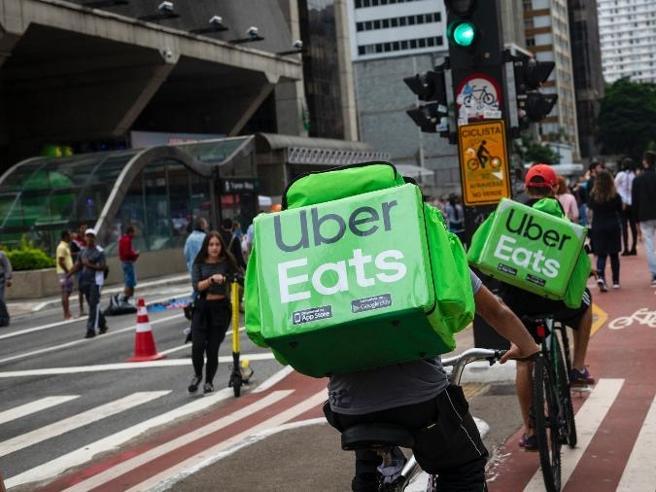Report
Uber illegally exploited people desperate for work, Milan investigation finds
The end of the Milan investigation that led to Uber Italy being placed in temporary receivership in May confirms the seriousness of the situation. Ten managers were charged with crimes.

Abuse, exploitation and illegally brokered rider labor—all on the backs of migrants with a desperate need to work, who have been swindled by people who were stealing from their wages and stashing the cash in safe deposit boxes.
The end of the Milan investigation that led to Uber Italy being placed in temporary receivership in May confirms the seriousness of the situation that led to unprecedented measures being taken. Food delivery comes to view once again as the sector of the gig economy that is exploiting workers without rights, whom Assodelivery—to which Uber Eats belongs—wants to keep in a low pay-per-piece regime, exploiting the faux contract recently signed with UGL, a union of convenience.
Ten people have been indicted, while the company itself will not face charges. On October 22, it will have to show up for a hearing before the Preventive Measures Court.
The notice of conclusion of the investigation filed by the Prosecutor Paolo Storari states that the delivery personnel “were subjected to degrading working conditions, with an oppressive payment and treatment regime, as recognized by the Uber employees themselves.”
This comes from the words of an employee who clearly says: “We have created a system for desperate people.” For saying that, she was admonished by the manager Gloria Bresciani: “Please don’t say it in front of an outsider, even if you think that. Dirty laundry should be aired at home and not outside.” She stands indicted for labor exploitation, together with Giuseppe and Leonardo Moltini and Danilo Donnini, managers of the brokerage companies FRC and Flash Road City that recruited the riders, taking advantage of “the state of need of workers, asylum-seeking migrants, those residing at extraordinary reception centers and coming from conflict zones (Mali, Nigeria, Ivory Coast, Gambia, Guinea, Pakistan, Bangladesh), and therefore in conditions of extreme vulnerability and social isolation.”
As we read in the notice of conclusion, the riders were “paid per piece, 3 euros per delivery,” “regardless of the distance to travel, weather, time slot (day/night and holidays).” They were “robbed of tips” and “punished” through “an arbitrary reduction (so-called malus) of the agreed compensation, if the riders did not comply with the instructions given.”
The prosecutor’s office also included a “prospectus” showing the wages for the week from May 20 to 26, 2019. After 75 hours worked (over 10 hours per day), a rider earned 225 euros. A colleague of his, with 68 hours, earned only 179.5 euros, due to a “malus” in the amount of 24.50 euros—a wage equal to 2.63 euros per hour. The riders were also “arbitrarily excluded from Uber’s work circuit through the blocking of their account for alleged job failures.”
The prosecutor is also charging one indictee with aiding and abetting, because, together with Giuseppe Moltini, he allegedly deposited about 305,000 euros, deemed as “profit” from exploitation and tax fraud, “inside a safe deposit box” at a bank.
The investigation was closed at a very delicate moment on the contractual front. A few weeks before the deadline at the end of October—when, according to the corporate crisis law of 2019, an hourly fee for riders that is equal to the provisions of the logistics contract will enter into force, amounting to over 10 euros per hour—Assodelivery signed a contract with the union UGL to preserve the per-piece regime. Deliveroo—the first company associated with this initiative—has sent threatening e-mails to their riders, ordering them to sign the contract on pain of dismissal.
The riders have mobilized, but without an urgent intervention of a court or an inspection body, many will be forced to sign the contract to continue working.
The CGIL union, which will join the Milanese case against “unacceptable working conditions” (according to confederal secretary Tania Scacchetti) as a civil party, is considering the possibility to file complaints for anti-union behavior and support the criminal complaints for extortion filed by the riders and the association Comma 2.
Originally published at https://ilmanifesto.it/uber-sfruttava-rider-disperati-a-tre-euro-lora/ on 2020-10-13
